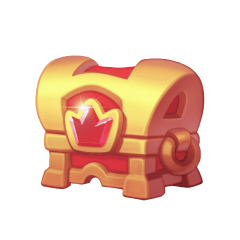What Does Volatility Means in Slots?

What is Volatility in Slots?
Volatility, also known as variance, is a term that describes the risk involved in playing a particular slot machine. It refers to the frequency and size of payouts, and can be broken down into three main categories: high volatility, medium volatility, and low volatility.
High volatility slots offer infrequent payouts, but those payouts tend to be larger. These machines are often preferred by players looking for a big win and are willing to accept the risk of losing money.
Medium volatility slots offer a balance between high and low volatility slots, with payouts that are more frequent than high volatility machines but less frequent than low volatility machines.
In their turn, low volatility slots are those that offer frequent payouts, but those payouts tend to be smaller.
Comparison with Other Slot Terms
While volatility is an important concept to understand, it's not the only term that players should be familiar with. Two other important terms are RTP (return to player) and hit frequency.
The RTP refers to the percentage of money that is paid back to players over time. For example, if a slot machine has an RTP of 95%, it means that players can expect to receive 95% of the money they wagered back in winnings over time. While RTP is an important factor to consider when choosing a slot machine, it doesn't necessarily indicate the volatility of a machine.
Hit frequency, however, refers to how often a slot machine will pay out a winning combination. For example, a slot machine with a hit frequency of 25% will pay out a winning combination on approximately one out of every four spins. While hit frequency can give players an idea of how often they might win, it doesn't necessarily indicate the size of the payouts.
Pros and Cons of High and Low Volatility Slots
Both high and low volatility slots have their advantages and disadvantages. High volatility slots offer the potential for big payouts, which can be appealing to players. However, the risk of losing money in the meantime can be off-putting to some. Additionally, high volatility slots can be frustrating for players looking for more consistent wins.
On the other hand, low volatility slots offer more frequent payouts, which can keep players engaged and entertained for longer periods. However, these payouts tend to be smaller, which can be less appealing to players who are looking for big wins.
Choosing a Slot Based on Volatility
When choosing a slot machine to play, it's important to consider the volatility level. Players who are looking for larger payouts and willing to accept the risk of longer dry spells may want to try their luck at high volatility slots. Those who prefer more consistent wins and longer playing times may want to choose low volatility slots. Medium volatility slots can be a good option for players who want a balance between the two.
Tips for Finding the Right Volatility Level
Here are a few tips for finding the right volatility level for your play style:
1. Consider your bankroll: If you have a smaller bankroll, you may want to choose a low volatility slot to make your money last longer.
2. Look for progressive jackpots: Some high volatility slots offer progressive jackpots, which can be life-changing if you hit them. However, remember that the odds of hitting a progressive jackpot are low.
3. Try before you buy: Many online casinos offer free play versions of their slot machines. Use these free play versions to get a feel for a machine's
Conclusion
Understanding the concept of volatility in slots is an important part of being a successful player. By knowing the different types of volatility and their characteristics, players can make more informed decisions about which slot machines to play.
Whether you prefer the potential for big payouts offered by high volatility slots or the consistency of low volatility slots, there is a machine out there that will meet your needs. So the next time you're at the casino or playing online, consider the volatility level of the slot machine you choose, and remember to always gamble responsibly.
FAQ
What is volatility in slots?
Volatility, also known as variance, is a term that describes the risk involved in playing a particular slot machine. It refers to the frequency and size of payouts.
What are the different types of volatility in slots?
Slots have three main types of volatility: high volatility, medium volatility, and low volatility. High volatility slots offer infrequent but larger payouts, low volatility slots offer frequent but smaller payouts, and medium volatility slots offer a balance between the two.
How does volatility differ from RTP and hit frequency?
RTP (return to player) refers to the percentage of money that is paid back to players over time, while hit frequency refers to how often a slot machine will pay out a winning combination. While these are important factors to consider when choosing a slot machine, they don't necessarily indicate the volatility of a machine.
What are the advantages and disadvantages of high and low volatility slots?
High volatility slots offer the potential for big payouts but carry the risk of longer dry spells, while low volatility slots offer more consistent wins but smaller payouts.
Play now More newsInteresting articles
Blackjack FAQ
Africa X Up Review
Adventures Beyond Wonderland Live
Baccarat FAQ
Yum Yum Powerways Slot Review























